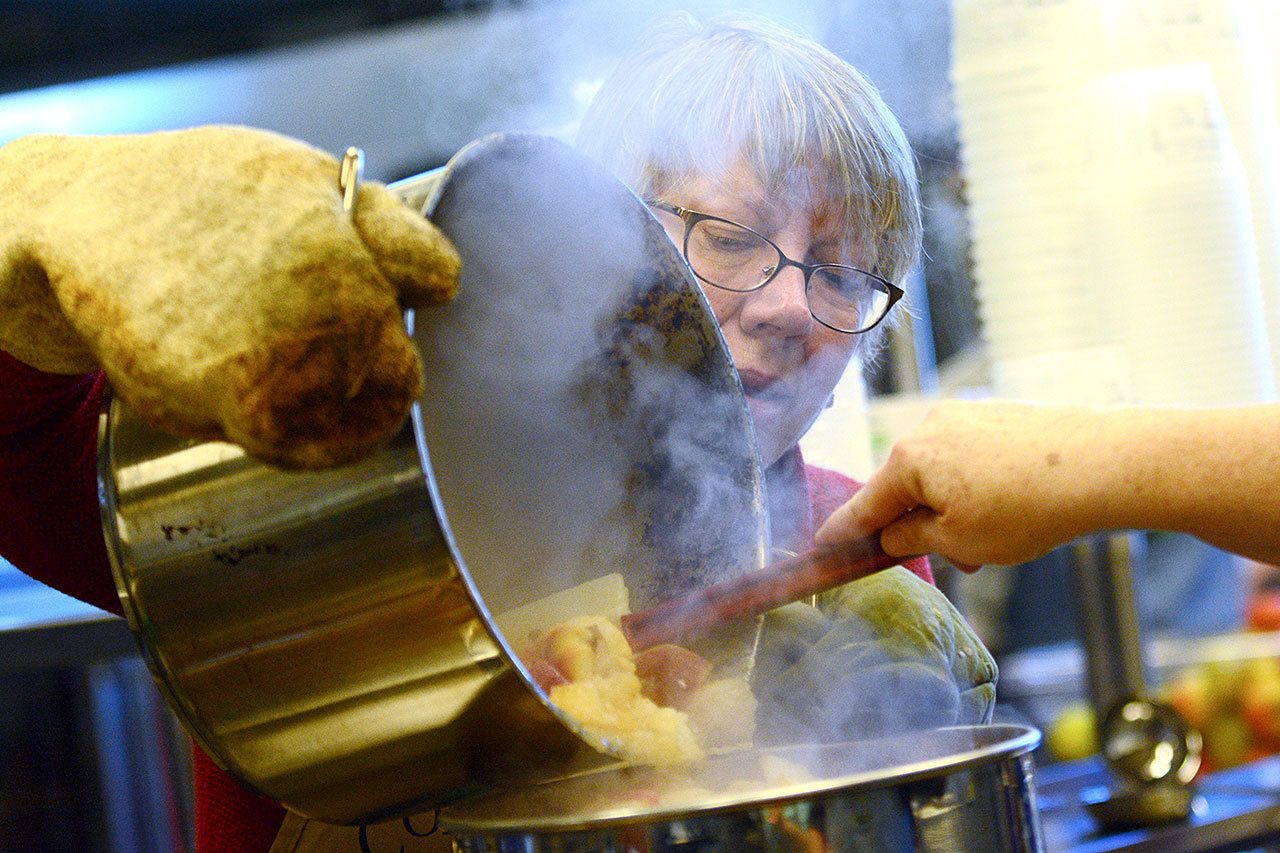PORT ANGELES — The smell of freshly cooked apples filled the air in the Elwha Heritage Center on Tuesday as volunteers turned 1,500 pounds of apples into applesauce that will be distributed to those in need around Clallam County.
It’s the first year the Clallam County Washington State University Extension Office has held the program and organizers hope to see it grow into the future.
“The goal of this project is to test the waters and see what’s possible in the community and … to provide nutritious food to a vulnerable population,” said Karlena Brailey, nutrition and physical activity coordinator for the extension office.
“If it’s successful, we’ll find more resources to increase the scale of it.”
The plan is to distribute the applesauce to the Port Angeles Food Bank, Sequim Food Bank, Port Angeles Salvation Army and Olympic Community Action Programs’ meals on wheels program.
After seeing such an over-abundance of apples available in Clallam County, it just made sense to take an extra step and turn it into applesauce, Brailey said.
She said food banks haven’t been able to distribute all the apples they receive before they start rotting. Applesauce could be the solution to that problem, she said.
“If you have the right storage [apples] can last all winter long,” she said. But local food banks don’t have the refrigerator space needed for all the apples, she said.
However, they do have freezer space where they can store applesauce.
A volunteer gleaning program that provides apples to area food banks is run through the extension office.
Apples from the food banks and the gleaning program were provided for the applesauce program, said Dan Littlefield, food recovery coordinator for the extension office.
Littlefield helps manage the gleaning program, which is more than 300 volunteers strong. People contact Littlefield and let him know if their trees have extra fruit that won’t get used.
He then puts the word out to the volunteers.
“These volunteer gleaners will come through, pick for themselves and for the food banks,” he said. “We definitely have a network of people who donate surplus food and people who are willing to pick for themselves and for the community.”
Not only does the applesauce solve the storage issue, but it also helps to provide a nutritious meal to people who might not be able to eat apples, Brailey said.
It provides a nice soft meal for people who use the meals on wheels program. It’s also serving people who might not have access to dental care who might not be able to eat apples, she said.
Because it’s the first time they’ve done the program, Littlefield and Brailey weren’t sure how much applesauce was actually going to be made.
However, they know the demand is greater than what was produced and hope to grow the program throughout the years.
If all goes as planned, they’ll be able to provide applesauce throughout the winter months.
The Elwha Heritage Center allowed the volunteers to use its commercial kitchen for the day for free.
________
Reporter Jesse Major can be reached at 360-452-2345, ext. 56250, or at jmajor@peninsuladailynews.com.

